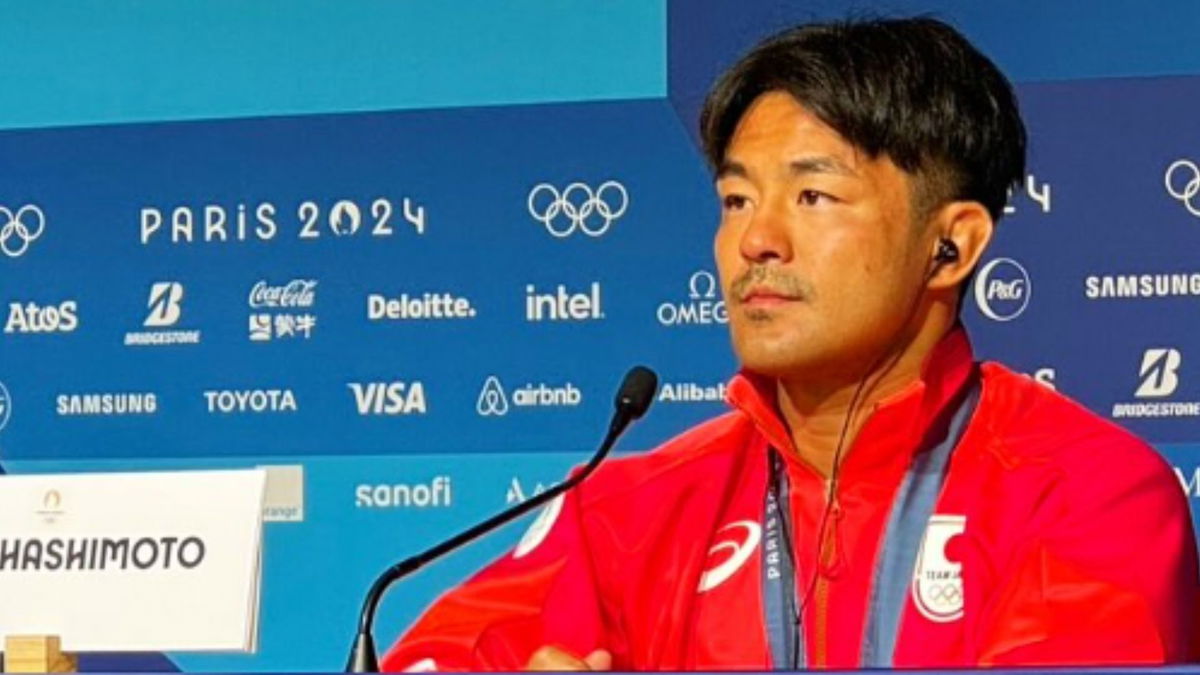

In a seismic shake-up, Japan has announced its boycott of the Paris Olympics, sparking controversy over judo judging. This bold move highlights Japan’s frustration with perceived officiating biases and casts a shadow over the event. Reflecting on his performance, 32-year-old Soichi Hashimoto said, “There were so many people who came out to cheer for me today, so I knew I couldn’t go home empty-handed. I did my best to the end, so I have no regrets in my judo career. I wasn’t able to reach the gold medal, but this was a memorable competition.”
Watch What’s Trending Now!
Hashimoto won bronze in his Olympic debut with a decisive waza-ari using a seoi-nage shoulder throw against Gjakova. But that came only with disappointment, “I was aiming only for the gold, so I’m disappointed with the result. But I gave it all I had,” he said.
According to a recent report from Tweetsoku on July 29, 2024, because judging issues lead to unfavorable outcomes for Japan, Japanese spectators feel Japan should be removed from the International Judo Federation (IJF). In the men’s 73 kg judo quarterfinals at the Paris Olympics, Soichi Hashimoto (32, Park 24) narrowly lost to Gabba from France.
ADVERTISEMENT

ADVERTISEMENT
After the match ran overtime, Hashimoto was disqualified after three warnings. However, the International Judo Federation (IJF), which is biased against Japan, has called these warnings into question. The Paris Olympics became a tumultuous stage for Japan’s judo stars, exposing deep issues with the International Judo Federation. Ryuju Nagayama, aiming to step out of Naohisa Takato’s shadow, faced a crushing blow. A controversial referee call knocked him out of the -60kg final. Shocked, Nagayama refused to shake hands with the winner, Spaniard Garrigós. “I feel a lot of regret that I didn’t win as well,” said Takato, watching from the crowd.
Uta Abe experienced her own heartache. The Tokyo 2020 champion lost to Uzbekistan’s Diyora Keldiyorova in the second round. Abe, who had never left a competition without a medal since 2019, broke down in tears. Her defeat came just before her brother Hifumi won gold, shattering their hopes of defending their titles together. Seeing Uta weeping in her coach’s arms captured the agony of the games. These heartbreaks have ignited calls for reform. Many argue that the current points system no longer reflects the essence of judo and favors other nationalities. Fans are unhappy with the changes, saying, “It’s time for the AJJF to withdraw from the International Judo Federation and establish a new international organization centred on Japanese Judo.”
ADVERTISEMENT
They believe that varying judging standards make the current system unfair. Some suggest Japan should leave the IJF and form a new body to preserve Kodokan Judo. The outcry extends to social media, where fans demand a return to traditional judo. “The AJJF should leave the International Judo Federation and create a new international organization focused on Japanese Judo,” many argue. On Reddit, a fan noted that finding supporters of the current competition rules is rare. “Competitive judo ruleset is objectively a**,” said one fan, who also criticized the Olympics and the IOC, calling this year’s tournament “the worst judged I’ve ever seen.” The controversy surrounding judo judging at the Paris Olympics will likely have a lasting impact. Fans hope their calls for reform will lead to improvements without disrupting future events.
Japan’s judo legacy: A special bond with the Olympics
Jigoro Kano Shihan, the founder of Kodokan, created the Japan Sports Association to enable Japan’s participation in the 1912 Stockholm Olympics. He is known as “The father of sports in Japan”. Jigoro’s dream of “internationalizing judo” came true at the 1964 Tokyo Olympics, where men’s judo debuted as an official event. Japanese competitors dominated, except in the open division. This showed judo’s global reach. Women’s judo was a demonstration event at the 1988 Seoul Olympics and became official in 1992 at Barcelona. As of March 2021, 204 countries and regions are in the International Judo Federation. Judo is especially popular in Europe, with more practitioners in France than Japan.
ADVERTISEMENT
Japan is being represented by Abe Hifumi, Soichi Hashimoto, Funakubo Haruka, Nagayama Ryuju and Tsunoda Natsumi in Judo at the Paris 2024 Olympics. Hashimoto is the oldest judoka in Japanese judo history to compete at the Olympics. This makes him Japan’s oldest medalist in Judo, too. They represent the special history that the nation has with Judo, which was created by Jigoro Kano in 1882. It has had a profound cultural impact on Japan and embodies the principles of discipline, respect, and mutual brotherhood among the people. This establishment of Kodokan has allowed Judo to be instrumental in developing character and instilling morals.
Japanese athletes at the Tokyo 2020 Olympics were truly inspiring. Historically, Japan won nine stunning gold medals in the 2020 Tokyo Olympics, setting a new world record. Notably, judokas Tadahiro Nomura and Ryoko Tani have become the faces of the sport. Nomura became the first judoka ever to win three gold medals, and Tani won two of the three total Olympic medals. This performance really shows their prowess in the sport and how they may be dissatisfied with the current medal wins in a foreign city. Could this be the moment for Japan to reclaim judo’s original spirit and lead the sport into a new era?
Top Stories
Bengals’ Cam Taylor-Britt Sentenced to Jail: Everything We Know About Charges Against Him

Serious Allegations Emerge Against Former NCAA D3 Athlete Matthew Molinaro After Milford Crime

Bill Cowher’s Strong Message to Steelers on Firing Mike Tomlin After HC’s Blunt Playoff Message

Bill Belichick & Patriots Abandoned RB Battling Cancer, Then Forced to Join Dolphins

Jerry Jones Issues Statement After Firing Matt Eberflus as Cowboys Look for a New DC

Kirk Cousins Receives Concerning $45M News on Trade Away From Falcons After Raheem Morris’ Firing

ADVERTISEMENT
ADVERTISEMENT
ADVERTISEMENT

